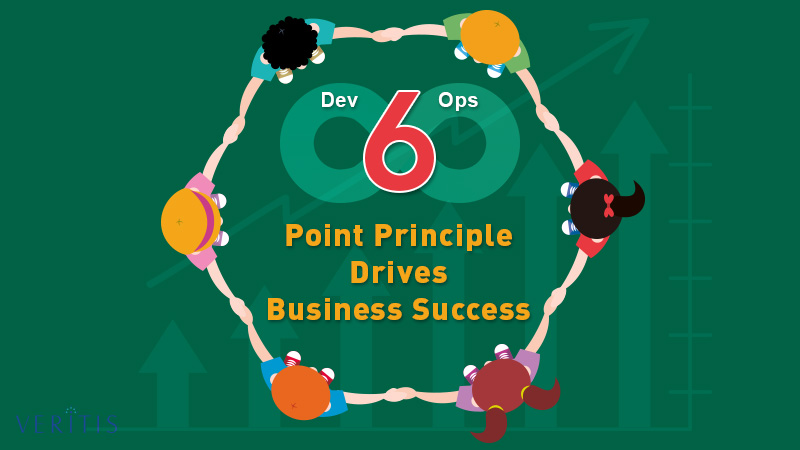
Changes to IT environment were rather messy before Development and Operations teams merged. Heated discussions, hundreds of code errors, extended deadlines, and malfunctioning applications became an everyday struggle for IT professionals.
Fast forward to today, everything from above seems like a bad dream that disappeared at the wake of the morning.
With six core capabilities at its centre, Dev and Ops teams work together to deliver the success that every company desires.
Let’s take a look!
- Collaboration
- Automation
- Continuous Integration
- Continuous Testing
- Continuous Delivery
- Continuous Monitoring
Before we move ahead, let’s go back on a quick recap of their role and their commitment to delivering efficiency.
Useful Link: Measuring DevOps Success in 4 Ways!
Dev and Ops were two separate entities with different cultural backgrounds until the need for their collaboration was felt. Now, it is utterly necessary that when one is working, the other chimes in. When production is live and while Dev works on code, Ops should be there to ensure the expected outcome and address any workflow glitches, along a common framework.
But more than their collaboration and the effectiveness of their efforts, it is the goal of developing a well-tailored app.
1) Collaboration
We’ve come a long way from the time when Development and Operations teams worked independently to produce an application. This process had the potential to be bettered. DevOps erases the company’s internal boundaries and binds both the teams. It encompasses everyone involved in the application development, QA and delivery.
2) Automation
DevOps is deeply reliant on automation for which you need tools. Not one, two or three but an entire toolchain, not only to automate but to connect the disparate teams and the other people involved in the process.
3) Continuous Integration
The CI concept exemplifies the agile nature of the DevOps process. CI provides room for continuous testing and fixing through immediate feedback. This dev and ops collaboration ensures that everyone remains on the same page as it is transparent as to how and who introduced the changes in the software.
4) Continuous Testing
Earlier, testing was restricted to the concerned team but now it’s everyone’s call-to-action. When development experts pass the correct code to testing teams, they also provide them with test data sets that help these test engineers be on the same page as the production environment.
5) Continuous Delivery
Continuous delivery is an extension of continuous integration except that the latter never makes it beyond the testing lab of DevOps. And the end result of continuous delivery? Individual releases are less complicated and are delivered much more frequently. Some software developers take the risk of carting developer codes to the end-users and depend on their feedback to watch the real-time performance and minimize any glitches.
6) Continuous Monitoring
There is no way to assure a step-by-step DevOps process, its very nature demands that the different elements talk to each other across the development framework. So how do you deal with failures? You find them and fix them immediately, that is what continuous monitoring is about. And the advantage that entails, the same tools used for monitoring can be used to identify problems before they reach production.
These are the characteristics that present DevOps as the ultimate solution while working to create a smart and friendly application. This DevOps Before & After Scenario will help you understand how the six main capabilities and many similar others work to give you a positive DevOps experience.
Useful Link: How DevOps Helps Businesses in Addressing Technical Debt?
Conclusion
DevOps is a very productive approach, and it has benefitted companies immensely. Although most assume that DevOps is footloose, it is an approach which is well-founded on these principles. However, transitioning from the traditional production approach is rather tough. This is where Veritis steps in and gets the job done.
Key Takeaways
- DevOps is a flexible but it well-founded on principles
- DevOps collaboration is unparalleled
- Continuous integration betters the software solution
- Veritis has tailored DevOps solutions to various clients
Additional Resources:


